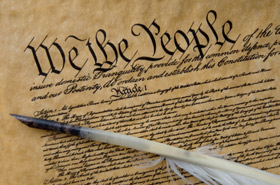News Archives - 2010
A Preamble Movement
 Harry C. Boyte is the co-director of the Center for Democracy and Citizenship at Augsburg College. He teaches graduate and undergraduate courses on organizing theory and practice at the University of Minnesota's Hubert H. Humphrey Institute of Public Affairs, and is in demand as a keynote speaker with faculty, students, and professionals.
Harry C. Boyte is the co-director of the Center for Democracy and Citizenship at Augsburg College. He teaches graduate and undergraduate courses on organizing theory and practice at the University of Minnesota's Hubert H. Humphrey Institute of Public Affairs, and is in demand as a keynote speaker with faculty, students, and professionals.
Americans this election season are in an angry, anxious mood that defies easy labels. As Joel Klein describes in a Time cover story based on conversations across the country, "People told personal stories and made complicated arguments that didn't fit neatly into their assigned political categories."
While people worried that the country may be moving toward a "European style of Big Government," they also felt strongly that the unfettered market is no solution. "The disgraceful behavior of the financial community...was the issue that raised the most passion." The financial crisis has led "more than a few people to question their own values and those of their neighbors." Frank Rich echoed this insight on October 24 in the New York Times. "So many know that the loftiest perpetrators of this national devastation got get-out-of fail free cards [and] that the too-big-to-fail banks have grown bigger."
It is worth recalling that in 2008, we elected a president whose message was "Yes we can," based on the idea that large changes require a process of civic action far beyond what government alone can accomplish. He had learned a philosophy of civic agency—that we all must become agents of change—from his days as a community organizer. "I'm asking you not only to believe in my ability to make change; I'm asking you to believe in yours," read the campaign website. Civic agency infused the campaign. As Tim Dickinson put it in Rolling Stone, "The goal is not to put supporters to work but to enable them to put themselves to work without having to depend on the campaign for constant guidance."
This message resembles the Preamble to the Constitution: "We the People" establish government as the instrument of our work, "to form a more perfect Union, establish justice...promote the general welfare, and secure the blessings of liberty..." Citizens sensed then—and perhaps we all know even better now—that it will require a Preamble movement if we are to revitalize a strong sense of citizenship and ourselves as citizens, not complainers or customers of government. Only citizens can recall that government is "us," not an alien "other," the resource and meeting ground for our common work.